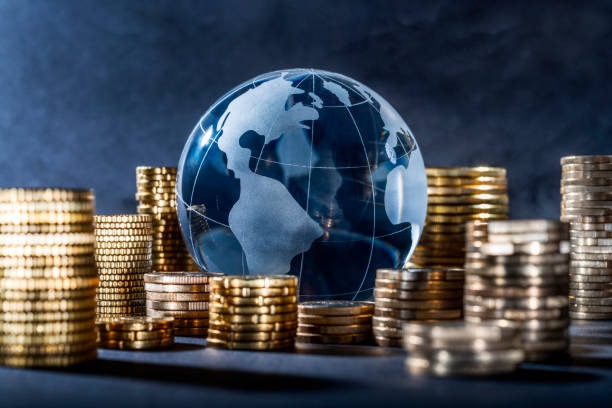Do You Know How the Global Economy Works
#GlobalEconomy, #InternationalTrade, #WorldFinance, #EconomyExplained, #HowGlobalEconomyWorks, #TradeWars, #CurrencyExchange, #WTO, #IMF, #StockMarket, #WorldMarket, #EconomicAwareness, #DigitalEconomy, #FutureOfFinance, #Economy
BUSINESS & ECONOMY
7/29/20252 min read


The global economy is like a massive machine made up of interconnected parts—countries, businesses, people, money, and markets. Every decision made in one part of the world can affect others. From the price of petrol in India to the stock market in the U.S., it’s all tied together. But how exactly does this system function? Let’s break it down in a way that’s easy to understand.
1. What Is the Global Economy?
The global economy refers to the worldwide network of economic activities. It includes:
Production of goods and services
Trade between nations
Investment across borders
Labor movement, and
Currency exchange
Simply put, it’s how the world does business together.
2. The Role of Countries
Each country plays a role:
Developed countries like the U.S., Japan, Germany often lead in technology, manufacturing, and capital.
Developing countries like India, Brazil, Vietnam often provide raw materials, labor, or are growing service hubs.
Exporters (China, Saudi Arabia) sell goods or oil.
Importers (USA, UK) buy goods and services.
These roles are not fixed, and countries shift their roles as their economies evolve.
3. International Trade – The Lifeline
Trade connects countries:
Imports: Buying goods from other countries
Exports: Selling goods to other countries
For example:
India imports oil from the Middle East
India exports software and textiles globally
Trade is governed by rules set by organizations like the World Trade Organization (WTO).
4. Currency and Exchange Rates
Every country has a currency—Dollar, Rupee, Euro, Yen.
The exchange rate decides how much one currency is worth in another.
When the Indian Rupee weakens against the Dollar, imported goods become more expensive.
Global currencies fluctuate based on demand, inflation, interest rates, and political stability.
5. Global Financial Institutions
Several global bodies help maintain stability:
IMF (International Monetary Fund) – lends money to countries in crisis
World Bank – funds development projects
WTO (World Trade Organization) – regulates international trade
UNCTAD – supports developing nations in global trade
6. Impact of Global Events
Events in one region can cause ripple effects:
War in Ukraine affected oil and wheat prices globally
COVID-19 disrupted supply chains worldwide
U.S. interest rate changes impact stock markets in Asia
This interdependence makes the global economy both powerful and vulnerable.
7. Role of Technology
Technology has globalized economies:
Businesses outsource services overseas (like call centers)
Online marketplaces allow cross-border sales (Amazon, Alibaba)
Cryptocurrencies like Bitcoin are creating new economic discussions
Tech has shrunk the world, making trade and communication instant.
8. Globalization: Pros and Cons
Pros:
Access to global markets
Cheaper goods for consumers
Job opportunities in new sectors
Cons:
Local industries may suffer
Over-dependence on foreign suppliers
Economic inequality
Countries must balance globalization with domestic interests.
9. How It Affects You
You’re part of the global economy whether you know it or not:
The phone you use may be assembled in China, designed in the U.S., and marketed in India.
Your job may depend on international clients.
Fuel, electronics, and even food prices are affected by global trade and currency shifts.
10. The Future of the Global Economy
Trends shaping the future:
Rise of digital currencies and blockchain
Shifting power from West to East (Asia’s growing influence)
Focus on sustainable and green economies
Use of AI and automation in global trade
The economy is becoming more digital, dynamic, and decentralized.
Conclusion
The global economy is a complex yet fascinating web of trade, technology, finance, and people. Whether you're buying a shirt, investing in stocks, or just using the internet—you're participating in it. Understanding its mechanics can help you make better financial decisions, adapt to global trends, and appreciate how interconnected our world truly is.
Knowledge
Empowering minds with reliable educational content daily.
Newsletter Signup
© 2025 DoYouKnow. All rights reserved.
Stay Ahead of the Trends – Join Our Newsletter
